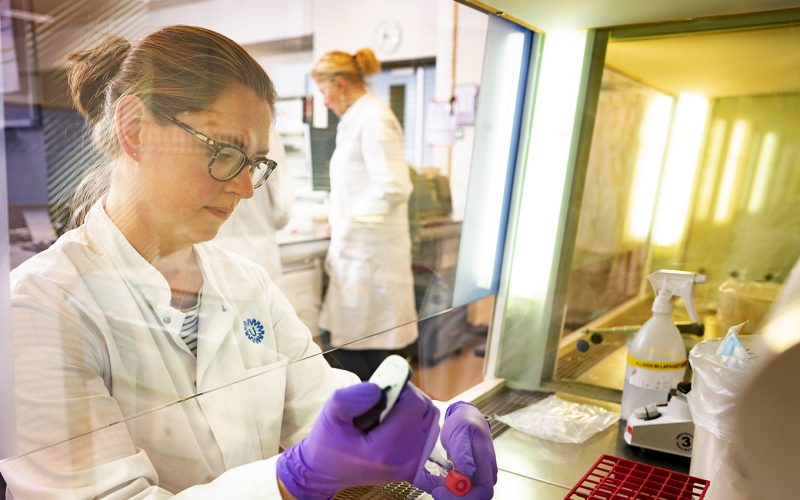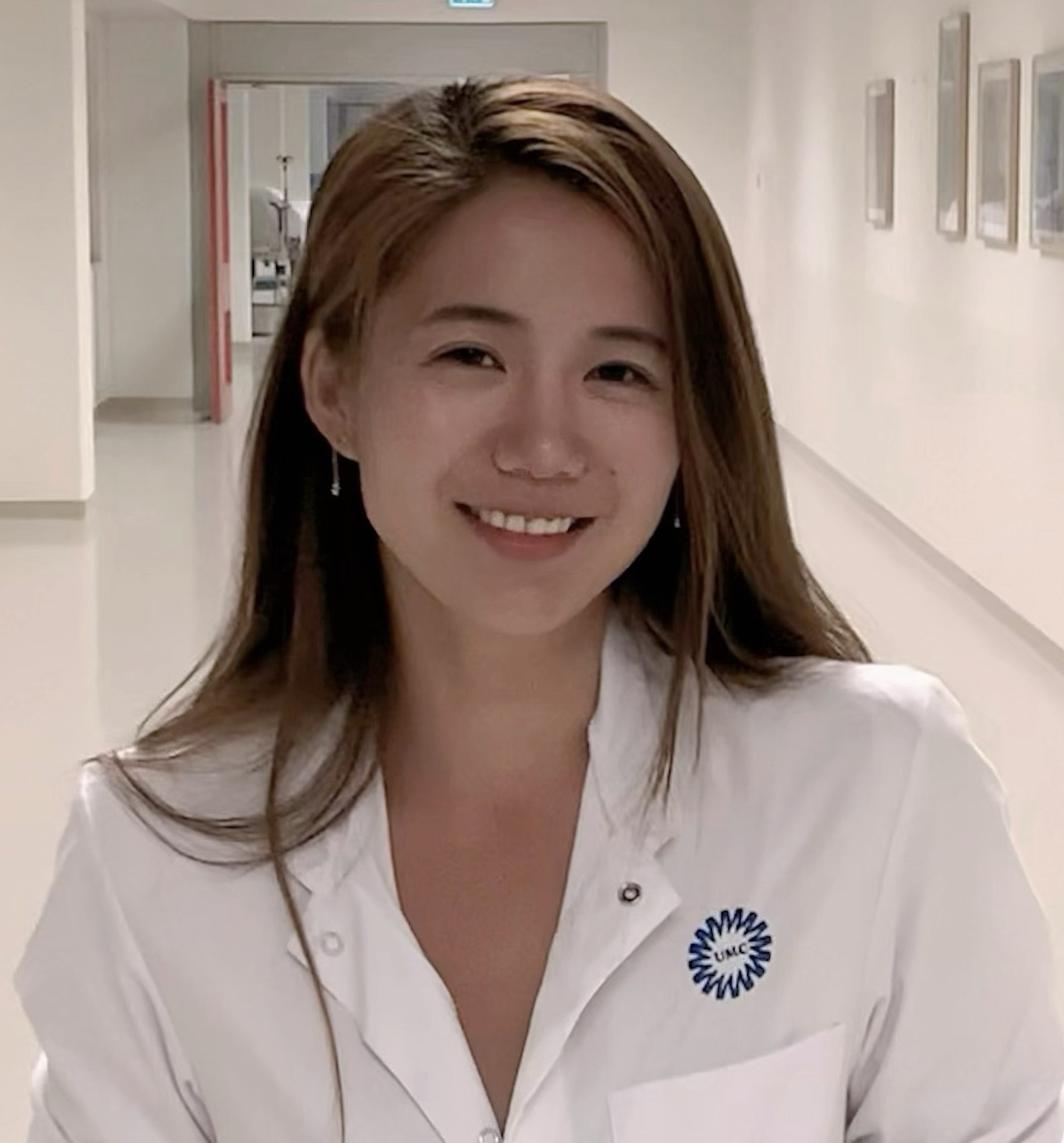The research presented in the PhD thesis by Shuxuan Zheng (UMC Utrecht) focused on the study of viruses using advanced genetic tools. She investigated various aspects of the intricate relationships between herpesviruses and coronaviruses and their human host. The outcomes of her studies provide new insights in virus-host interactions and viral immune evasion strategies.
Antiviral therapies often aim to inhibit virus replication by using acyclic nucleoside or nucleotide analogues (e.g. acyclovir). However, viruses increasingly develop drug resistance against these antivirals which may lead to treatment failure. In her studies, PhD candidate Shuxuan Zheng (Department of Medical Microbiology, UMC Utrecht) used advanced laboratory techniques, such as gene editing and screening technologies, to unravel virus-host interactions and viral immune evasions strategies. In her studies she focused on Herpes Simplex Virus type 1 (HSV-1) and SARS-CoV-2.
Shuxuan Zheng used a CRISPR/Cas9 Library Screen to identify new host genes involved in HSV-1 infection. By leveraging the CRISPR/Cas9 system, Zheng and colleagues could systematically knock out individual genes across the genome in host cells and then observe how the loss of each gene affects HSV-1 infection. With help of biochemical approaches she subsequently discovered a novel regulator of heparan sulfate chain length, which is crucial for virus-host interactions. She als used CRISPR/Cas9 to make precise single amino-acid substitutions in a viral strain from a patient with reactivated eye disease that did not respond to antiviral treatment with acyclovir. Using this technique, she proved that a specific novel mutation was causative in the resistance to the antiviral compound acyclovir. In addition, after gene editing of the clinical isolate, the virus became sensitive to the drug.
Furthermore, Shuxuan Zheng used next-generation sequencing (NGS) to study drug-resistant HSV-1 variants in an immunocompromised patient with chronic lymphatic leukemia undergoing stem cell transplantation. The patient experienced multiresistant HSV-1 reactivation causing stomatitis. NGS enabled Zheng to identify rare gene mutations linked to antiviral drug resistance, revealing the complexity of mixed HSV-1 infections and providing critical insights for treatment in such challenging cases. Her extended idea for the use of next-generation sequencing on relevant pathogens before prescribing antimicrobials to immunosuppressed patients was published in The Lancet.
Finally, with help of a SARS-CoV-2 cDNA Library she identified a new immune evasion strategy by SARS-CoV-2: she found that the ORF7a gene from SARS-CoV-2 can thwart the antigen presentation pathway by downregulating HLA class I surface expression, thereby inhibiting anti-viral cytotoxic T cell activity.
Herpesviruses are a group of double-stranded DNA viruses belonging to the Herpesviridae family. Several of these are known to cause infections in humans. HSV-1 is a common virus that primarily causes oral herpes. Most infections are asymptomatic, when symptoms occur, they include (often recurring) cold sores, viral encephalitis, and infection of they eye (keratitis). It is highly contagious and spreads through direct contact with infected saliva or skin. HSV-1 can also cause genital herpes through oral-genital contact. While there is no cure, antiviral medication can help manage outbreaks and reduce transmission. Globally, about 67 percent of people under 50 years are infected with HSV-1.
Shuxuan Zheng MSc (1992, Qingdao, China) defended her PhD thesis on September 4, 2024 at Utrecht University. The title of her thesis was “Elucidating virus-host interactions and viral immune evasion strategies using genetic editing and screening technologies”. Supervisor was prof. em. Emmanuel Wiertz, MD PhD and co-supervisor was ir. Robert Jan Lebbink, PhD (both Department of Medical Microbiology, UMC Utrecht).


